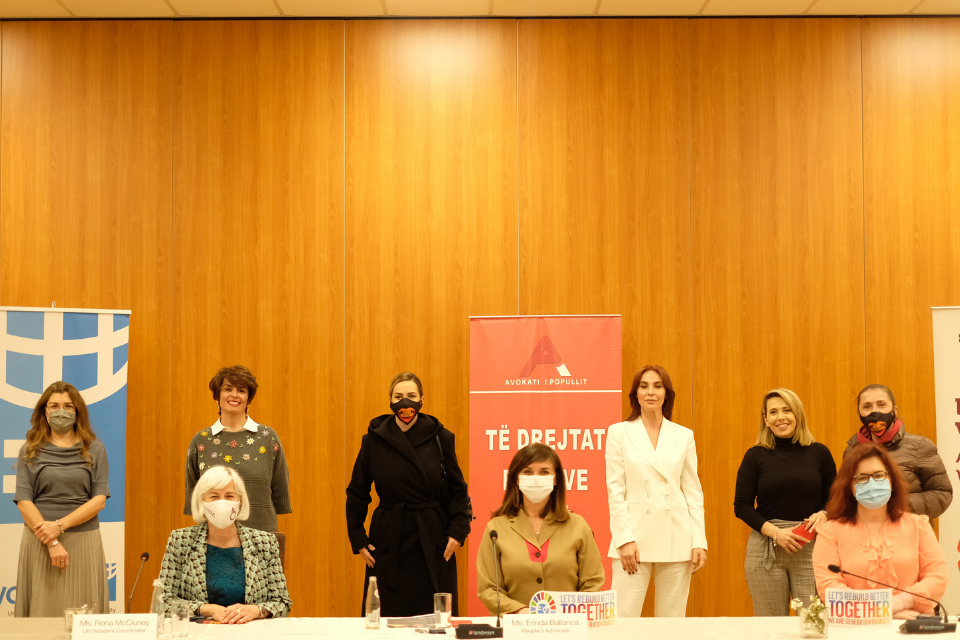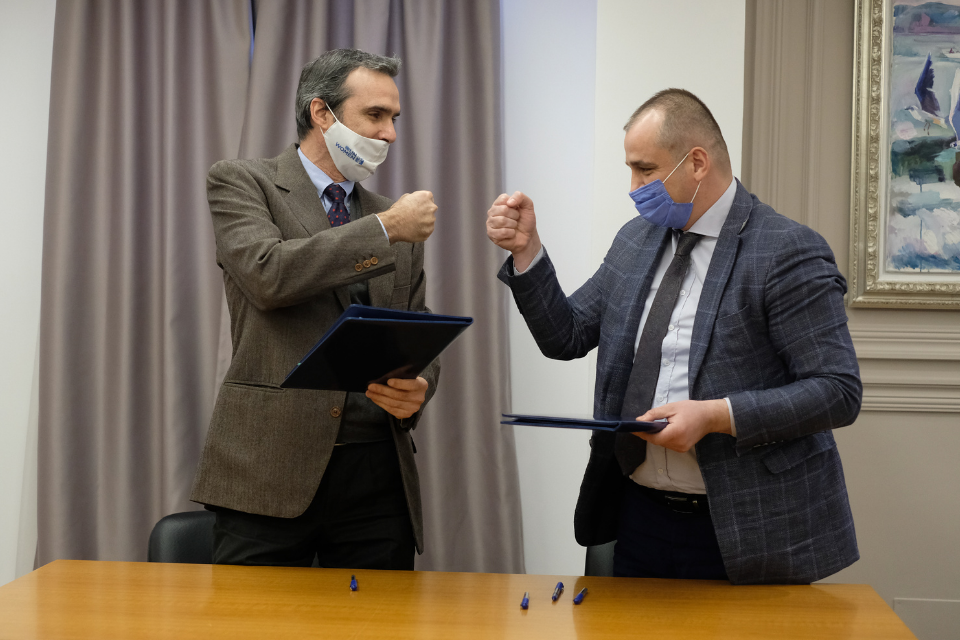Campaigns, discussions, training and more put International Women’s Day in the spotlight in Albania
A wide range of events across Albania saw celebrities, farmers, journalists, and government officials mark International Women’s Day.Date:
Changing gender roles
For International Women’s Day, girls and boys in Albania changed their roles! Seven influential figures used irony to raise awareness and put a spotlight on issues women and girls face every day. These included: patriarchal norms, domestic abuse, sexual harassment, unpaid work, gender stereotypes, and more. Using the hashtag #changingroles, the influential figures posted video messages on their Instagram accounts gaining almost 200,000 views. They were in the spotlight on 8 March, receiving positive comments for raising gender inequality issues and discrimination. The campaign was supported by actors, journalists, comedians, and bloggers as part of the UN Joint Program on Eliminating Violence Against Women in Albania, financed by the Government of Sweden.
Media, freedom of speech, and women's rights! This was the theme of discussion between people's advocates, the Audiovisual Media Authority, and media organizations at a special discussion on International Women’s Day. The participants discussed how to better achieve respect for human rights by and in the media and the role of institutions and journalists.
UN Resident Coordinator in Albania, Fiona Mc Cluney, highlighted that for the UN, media are regarded as a key ‘entry point’ for promoting women’s rights and preventing violence against women and girls in the long term. “For this reason, we need to increase collaboration with media as a significant tool for the positive portrayal of men and women in society and driving away practices that reinforce violence against women and girls,” she said.

Meanwhile, as part of the EU-UN Women regional program on eliminating violence against women and girls in the Western Balkans and Turkey, small-scale activities, training, and awareness events were organized by different partner organizations. Simultaneously, municipalities across the country, where UN Women is supporting the Referral Mechanism against Domestic Violence, commemorated International Women’s Day.
Women’s rights and the media
Participants discussed the role of the Audiovisual Media Authority in monitoring cases where women’s rights had been violated. With general elections coming up in Albania, specific attention was on the Authority’s role in stopping sexism towards women candidates during the electoral campaign.
“I think that Albanian media needs to focus more on the perpetrator and not the victim. The many details reported in the media about women victims of violence can mean that they are identified and this can have consequences for them and their families,” said people’s advocate, Erinda Ballanca.
Journalists also spoke up, with Anila Hoxha highlighting that the role of the media has been strong, but there are cases when personal data are revealed. “Can it be fixed only with training, pressure on the newsrooms so that the journalist is not asked to highlight details that are not ethical. This is not just a media job but a job for all of us.”
“Media can really contribute to the stereotypes of men and women, but I want media to break these stereotypes and promote change. When we consume media, we need to ask ourselves: who decides what we see? Which issues are important? How are women and men featured in texts, photos, and movies?,” said Elsa Hastad, Swedish Ambassador to Albania, highlighting Sweden’s long history in supporting gender equality in the country.
Participants also proposed to revise the Journalists Code of Ethics by including reporting on gender sensitivity and violence against women and girls, while also institutionalizing the relationship between editors/newsrooms and regulatory institutions.
The activity was organized as part of the UN Joint Programme on Eliminating Violence Against Women in Albania, supported by the Government of Sweden.
Women in Agriculture from Albania and Italy exchange ideas
Rich ideas and experiences were shared in a meeting with rural entrepreneurs from Albania and Italy on the empowerment and leadership of women in agriculture. The meeting was organized in collaboration with Ambasciata d'Italia a Tirana and Coldiretti Donne Impresa, the largest agricultural organization in Italy. Entrepreneurs from Albania and Italy shared both the challenges that they face and the benefits they bring to the communities where they operate. They shared their insights on the future of the agriculture sector and new opportunities emerging in both countries.
UN Women sign agreement with the Albanian Supreme State Audit
A new collaboration between UN Women and the Albanian Supreme State Audit aims to help implement gender equality commitments and monitoring of gender-responsive budgeting.

UN Women Representative in Albania, Michele Ribotta, and the Head of the Supreme State Audit, Arben Shehu, signed the newly established cooperation agreement on the occasion of International Women’s Day. UN Women commits to support the Albanian Supreme State Audit Institution by offering capacity development to professionals on how to apply a gender perspective in monitoring and audits. Technical and expert support will be provided in the process of developing the methodology for gender auditing and facilitating cooperation and exchange of information with the Parliament.
The first training with the Supreme State Audit about gender equality legislation and gender-responsive budgeting in Albania also got underway. These activities are part of the regional project ‘Transformative Financing for Gender Equality towards more Transparent, Inclusive and Accountable Governance in the Western Balkans’. This effort is supported by the Swedish International Development Cooperation Agency, Sida.